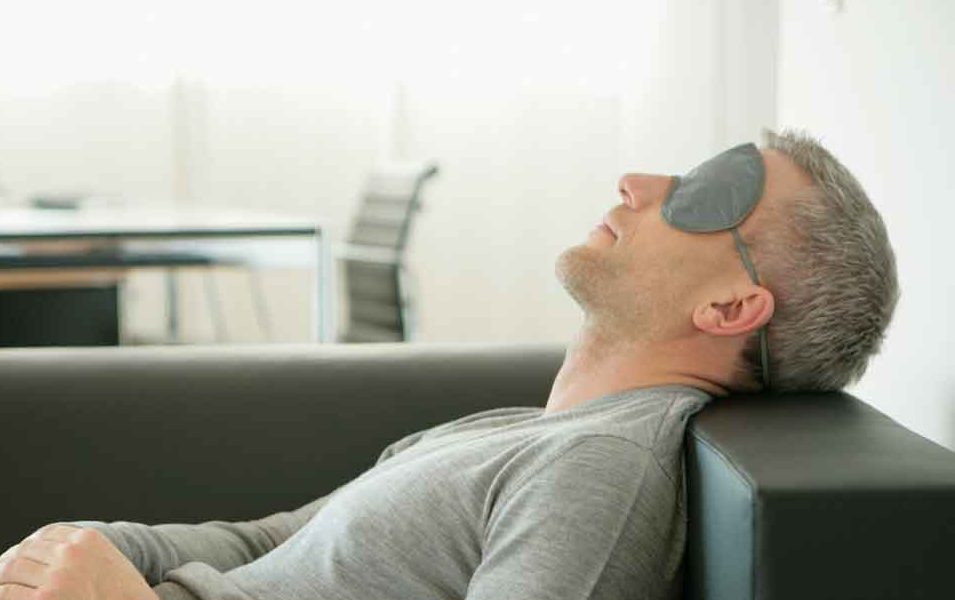Should You Take Naps?

Short naps are a good way to make up for lost sleep, but they can be a bad sign, especially among the elderly. Here’s how you can take a perfect nap.
Are you sleeping enough?
According to the Centers for Disease Control and Prevention, about one in three U.S. adults say that they don’t get enough sleep.
The average adult needs seven to nine hours of sleep per night. Getting less has a price. Besides feeling sleepy, people who are short of sleep tend to get depressed or anxious and perform less well at work. Driving while you’re sleepy is linked to car accidents, as well.
YOU MIGHT ALSO LIKE: Extra Weight and Depression Can Cause Daytime Sleepiness
Should you nap if you can?
The urge to nap is a normal and healthy reaction, according to some research. Nearly 40 percent of U.S. adults report falling asleep during the day without meaning to at least once a month. Ideally, they’d take those naps intentionally.
Napping athletes have been well-studied. Evidence suggests that napping can improve reaction time, attention, and short-term memory. For people who need one, a 90-minute nap may be ideal. Even if you’re not very active, short midday naps can improve your alertness for around two hours and some kinds of memory.
Napping may be especially useful for shift workers. For instance, in one study, a 3 a.m. nap seemed to help emergency room nurses and doctors working overnight. But napping can leave you groggy, so it’s important to get the details right if you regularly work during the night.
Daytime napping can also be a bad sign. In older people, who tend to nap more often due to changes in sleep patterns and lifestyle, an increase in napping may be linked to Alzheimer’s disease, heart disease, type 2 diabetes, and mortality.
Among adults generally, habitually napping for more than an hour has been linked to nearly double the risk of heart disease. Daytime napping is also a risk factor for depression, according to a meta-analysis with pooled data from nearly 650,000 volunteers.
How to take a nap
Ideally, you’ll get enough sleep at night. But if you can’t sleep enough or find napping is good for you, here are four tricks to make naps more effective.
Set aside an allotted amount of time
A power nap of 10 to 20 minutes may be ideal for many people, research suggests. But it really depends on your activity level and lack of sleep. Waking up groggy suggests you slept too long.
Plan to take naps mid-morning or mid-day
If you are often awake at night because you have insomnia or young children, or you work at night, aim for a mid-morning nap. If you eat lunch, nap afterwards.
Sara C. Mednick, PhD, a sleep researcher and author of “The Power of the Downstate,” offers a “Nap Wheel” to help you pick the best time for you. If you begin your day at 7 a.m., you might nap at 2 p.m.
Your goal is a balance between rapid-eye-movement (REM) sleep and slow-wave sleep. Your body will prioritize slow-wave sleep if you’re generally short of it.
During REM sleep, your brain consolidates and processes information. Slow-wave sleep is your body’s cue for basic maintenance.
Create a tranquil environment, just as you would at night
Turn off your phone and wear an eye mask or turn out the light and close your shades. Make sure you’re not cold or hot.
If you’re not home or don’t have privacy at work, try sleeping in your car in a quiet spot. In good weather, you can find a safe spot under a tree to park.
Give yourself time to wake up
Leave enough time for a transition from sleeping to being fully awake before you drive or attend a meeting.
If you have insomnia, you might be skeptical that you’ll fall sleep at any time of day. But there’s evidence that a successful nap will leave you more alert than a cup of coffee.
If you find yourself napping because you can’t stay awake during the day, it could be a sign of an underlying health issue; you should see your healthcare provider.
Updated:
October 13, 2023
Reviewed By:
Janet O’Dell, RN